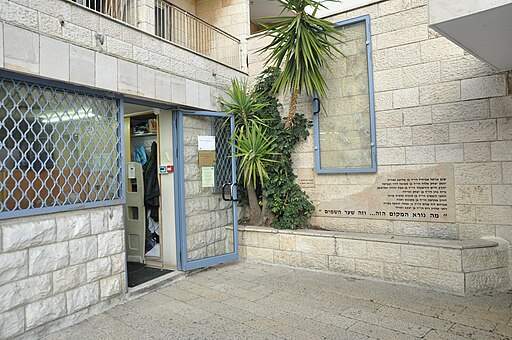16 minutes of terror; 8 young men gone: The Merkaz Harav attack remembered
This anniversary serves as a poignant reminder of the fragility of peace and the enduring pain of loss and the desperate truth that Jews continue to be killed for the crime of being Jewish.

Today, as the sun rises over Jerusalem, we pause to commemorate the anniversary of the Merkaz Harav massacre, a tragic event that unfolded on March 6, 2008, aligned this year with the Hebrew calendar date of Rosh Chodesh Adar II.
Seventeen years ago, a lone Palestinian gunman infiltrated the Mercaz Harav Yeshiva, a cornerstone of religious Zionist education, and unleashed a hail of bullets that claimed eight young lives and wounded eleven others. Today, we honor the memory of those lost, reflect on the resilience of a community, and reaffirm a commitment to healing amidst enduring grief.
The Fateful Night of March 6, 2008
The attack began at 8:30 p.m. local time, piercing the quiet sanctity of a Thursday evening at the yeshiva in West Jerusalem’s Kiryat Moshe neighborhood. The assailant, a resident of East Jerusalem’s Jabel Mukaber, approached the courtyard carrying a cardboard television box—a deceptive guise for the Kalashnikov rifle hidden within.
As students from both the Mercaz Harav Yeshiva and the adjacent Yashlatz high school mingled near the entrance, the gunman opened fire, killing three instantly: Yonadav Chaim Hirshfeld, 18, Ro’i Roth, 18, and Yehonatan Yitzhak Eldar, 16. He then stormed the yeshiva’s library, a sacred space where students pored over Torah texts, and continued his rampage. Five more fell there: Segev Pniel Avihail, 15, Yohai Lipshitz, 18, Avraham David Moses, 16, Neria Cohen, 15, and Doron Mahareta, 26.
The library, lined with bookshelves that became both refuge and trap, bore witness to unspeakable horror. Seventeen students barricaded themselves in an adjacent classroom, using a heavy table to block the door, while others in the Yashlatz beit midrash—preparing for a festive Rosh Chodesh celebration—fled to nearby homes. The chaos lasted sixteen agonizing minutes until two heroes emerged: Yitzhak Dadon, a long-time student, and Captain David Shapira, an off-duty IDF officer living nearby. Armed with their personal firearms, they confronted and neutralized the attacker, ending the bloodshed at 8:46 p.m.
The Victims: Eight Lives Cut Short
The eight young men killed were not just students—they were sons, brothers, friends, and bearers of boundless potential. Each left an indelible mark on their families and communities:
These “eight heavenly princes,” as they were later called in a memorial book published by Yashlatz students, were taken in their purest form, sanctifying God’s name through their deaths—Kiddush Hashem.
Aftermath and Resilience
The attack sent shockwaves through Israel and beyond. Prime Minister Ehud Olmert called it “horrible,” noting the yeshiva’s legacy of producing “the finest soldiers for many generations.” Yet, in their grief, the yeshiva community barred Olmert from visiting, a poignant statement of their desire to mourn privately and protect their sacred space. The following day, thousands gathered for a massive funeral, a sea of mourners spilling through Jerusalem’s streets, united in sorrow and solidarity.
Hamas praised the attack, and a poll two weeks later revealed that 84% of Palestinians supported it—a statistic that stunned observers and underscored the deep-seated tensions of the time. Internationally, leaders condemned the violence: U.S. President George W. Bush expressed solidarity with the victims’ families, Secretary of State Condoleezza Rice called it an “act of terror and depravity,” and presidential candidates Barack Obama and Hillary Clinton offered condolences, affirming Israel’s right to self-defense.
For the survivors and families, the road to healing has been long. Rivkah Moriah, mother of Avraham David Moses, later wrote of the shifting nature of grief: from initial shock to routine punctuated by intense sadness. The yeshiva itself, founded by Rabbi Abraham Isaac Kook in 1924, has continued its mission, its light of Torah growing brighter even in darkness, as a testament to Rabbi Kook’s teaching that the righteous “add justice, faith, and wisdom” in the face of evil.
A Day of Remembrance
Today, on this anniversary, Jerusalem reflects. The Hebrew date, Rosh Chodesh Adar II, typically a time of joy leading to Purim, carries a bittersweet weight, a reminder that even in celebration, the Jewish people bear scars of tragedy and resilience.
As we remember Neria, Segev, Avraham David, Yehonatan, Ro’i, Yohai, Yonadav, and Doron, we hold their families in our hearts. Their loss remains a wound, but their legacy—a commitment to Torah, Zionism, and community—endures forever. In their memory, let's pray for a world where the sanctity of life prevails over hatred, and where the light of these eight souls continues to guide us forward. May their memories be a blessing.